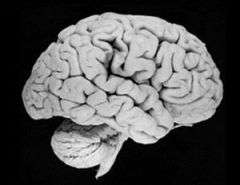Brain's inertial navigation system pinpointed

Researchers have discovered a sophisticated neural computer, buried deep in the cerebellum, that performs inertial navigation calculations to figure out a person’s movement through space.
These calculations are no mean feat, emphasized the researchers. The vestibular system in the inner ear provides the primary source of input to the brain about the body’s movement and orientation in space. However, the vestibular sensors in the inner ear yield information about head position only. Also, the vestibular system’s detection of head acceleration cannot distinguish between the effect of movement and that of gravitational force.
Dora Angelaki and colleagues published their findings in the June 21, 2007 issue of the journal Neuron, published by Cell Press.
Angelaki and colleagues based their brain studies on the predictions of a theoretical mathematical model postulating that the brain could compute inertial motion by combining rotational signals from the semicircular canal in the inner ear with gravity signals. They concentrated their search for the brain’s inertial navigation system on particular types of neurons, called Purkinje cells, in a region of the cerebellum known to receive signals from the vestibular system. This region is known as the posterior cerebellar vermis, a narrow, worm-like structure between the brain’s hemispheres.
In their experiments, the researchers measured the electrical activity of these Purkinje cells in monkeys as the animals’ heads were maneuvered through a precise series of rotations and accelerations. After analyzing the electrical signals measured from the Purkinje cells during these movements, the researchers concluded that the specialized Purkinje cells were, indeed, computing earth-referenced motion from head-centered vestibular information.
The researchers concluded that the output of the Purkinje cells indicates an “elegant solution” to the computational problems involved in inertial navigation.
Source: Cell Press




















